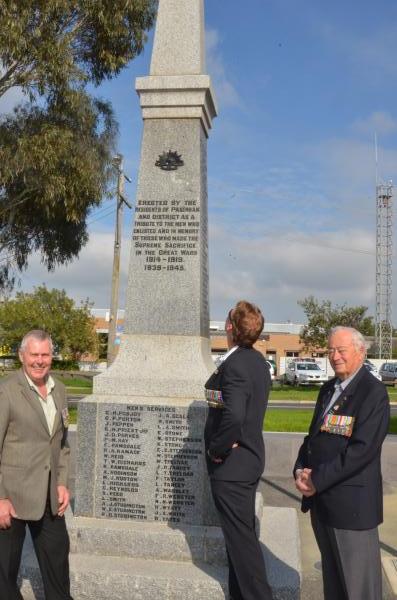By DANIELLE GALVIN
IN THE days following the Anzac dawn services, the Gazette spoke to three men whose lives have been changed, in some way or another, by the country’s great conflicts.
And if it’s true that the only constant is change, then their stories capture the essence of the evolving nature of wartime.
For World War II veteran Norm Joseph, he started his time in the war at just 15 years old with a sense of adventure and excitement.
Vietnam veteran Gary Elliott, and the current president of the Pakenham RSL, was conscripted to serve in one of the most unpopular wars the world has seen, in a time of a rapidly changing political and social climate.
One local soldier who cannot be named, and will be referred to as ‘Captain G’, served in Afghanistan and would describe himself as a career soldier.
As a still-serving member of the Army’s Special Operations Command, Captain G is duly afforded protected identity status.
The Pakenham resident and Australian regular Army officer spoke to the Gazette reporter Danielle Galvin over a mug of hot chocolate in a local cafe.
“I went to Cambodia in 1992-93 and East Timor in 1999-00 and 2003, later I deployed to Afghanistan,” Captain G said.
“There is a bit of a theme with that – just about everyone I know who has been in the Army for 10 years or so have been multiple times (overseas for service) to various missions.
“That’s the difference now, where you enlisted for previous wars you might serve your time and go but that’s the difference now with Afghanistan and Iraq – it’s a professional army that have volunteered to do the heavy lifting with no volunteers who enlist specifically for the duration or conscripts forced to serve because we are basically relying on professional soldiers to go back and do the work.
Captain G said between WWI and WWII, there was about 10,000 people in the Army, now there are more than 40,000 including in the reserves.
“Unless Australia was directly threatened, I think (conscription) would be very hard for the Australian people to accept again,” he said.
Now involved with the Pakenham RSL, Captain G said he joined up in the same spirit as the seamen in the Navy to ‘see the world’ but he never thought he was joining to go to war or to a peacekeeping mission.
“As I got past another milestone something else lined up,” he said.
“I was very lucky and think of those soldiers who discharged from the Army after 20-25 years who didn’t have the chance to serve overseas.
“Even the assistance we give to the civilian community in times of natural disaster is far more involved and co-ordinated that in previous decades.”
Captain G is a Legatee with Legacy, and said the relevance of the RSL and other organisations is still alive today but on a different scale.
“I’m a Legatee with Legacy because I want to look after those who have lost a serving parent either while serving or as a result of their service,” he said.
“We in the younger veteran community are very lucky as long-standing organisations such as the RSL and Legacy are already in place, well-resourced and versed in issues relating to veterans and veterans’ families.
“All the hard work has been done – all we need now is to attract the next generation of returned servicemen and women as well as anyone who has completed the minimum service in either the RAN, Army or RAAF.”
**BREAK OUT BOX**
TIMES are a-changing for the Pakenham RSL.
President of the sub-branch Gary Elliott said there are less returned service people involved in the RSL which has meant that the organisation has had to change and evolve over time.
“Eventually we are going to have a seven day a week operation if we are to survive and in a growing area like this, it is crying out for something like that to survive,” he said.
“The membership hasn’t changed much in the past 15 years and it is diminishing slowly.”
Mr Elliott said that the biggest difference between the various wars and conflicts is the fact that the soldiers today have made a career out of the military.
“The major difference that I see is that soldiers today are career soldiers,” he said.
“A lot of people joined up for the duration of the war (back then) and that’s what they were there for.
“That’s how Pakenham grew, there was a lot of soldiers who came to Pakenham in the 1940s late ’40s early ’50s, that’s how it started.
Norm Joseph has been humbled by the interest of young primary school students about his time in the war and said it has been an honour to talk about his experience with such keen kids.
“The Pakenham RSL hasn’t had the support from the community (which is our own fault) but that has changed, and if you look at Anzac Day now, they have that great level of interest from the community,” he said.
More on ’Captain G’ on Page 10.







